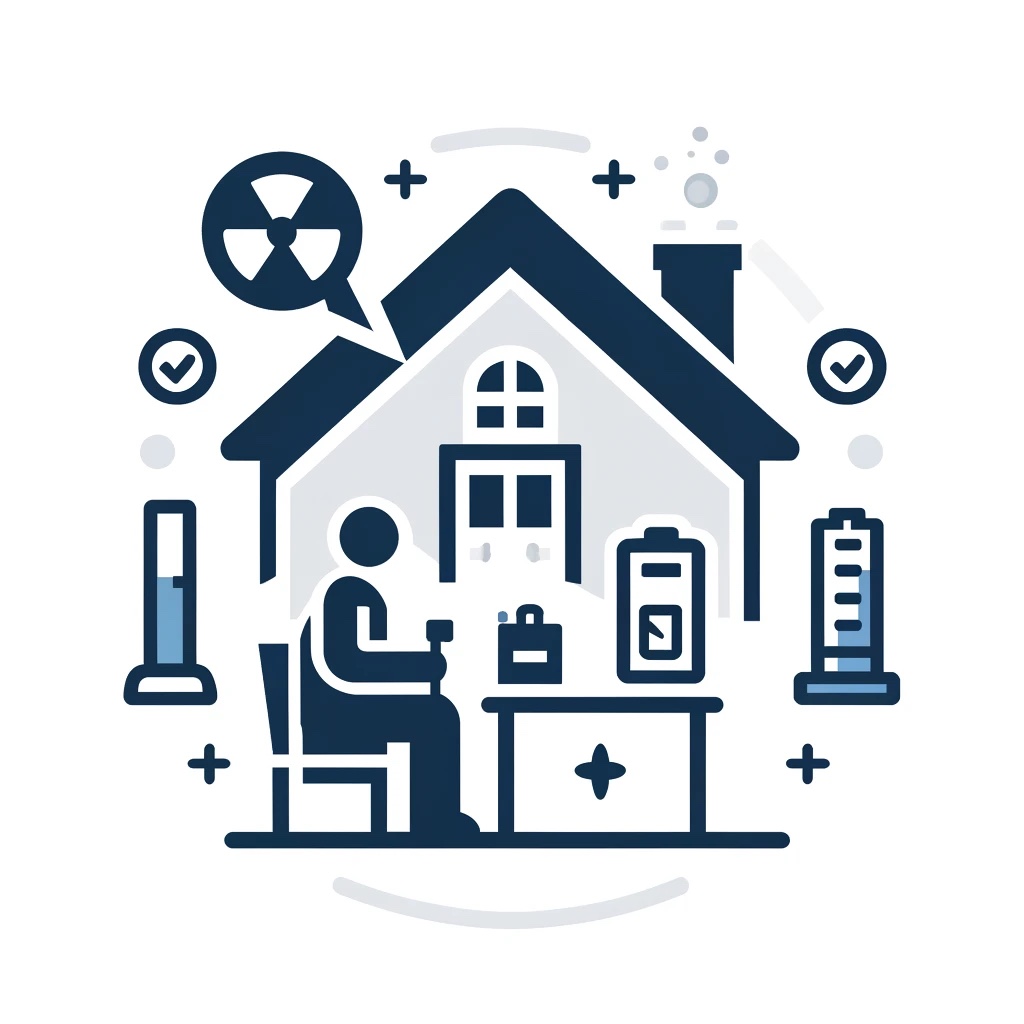What is Radon and Why Should You Be Concerned?
Radon is a colorless, odorless, radioactive gas that occurs naturally from the decay of uranium in the soil. It can seep into homes through cracks in the foundation, walls, and other openings. Long-term exposure to high levels of radon can lead to serious health issues, particularly lung cancer. This is why it's crucial to ensure that your home is safe from this invisible threat.
Why Testing for Radon is Important
Testing your home for radon is the only way to know if you and your family are at risk. Since radon is undetectable by human senses, specialized testing is necessary to measure its presence and concentration levels in your home. Understanding the process and importance of radon testing can help you make informed decisions about your home’s safety.
The Basic Steps Involved in Radon Testing
1. Initial Assessment
The first step in testing for radon involves an initial assessment of your home. Professionals will look at factors such as the age of your home, the type of foundation, and the local geology to determine the potential risk of radon exposure.
2. Choosing the Right Testing Method
There are various methods to test for radon, including short-term and long-term tests. Short-term tests, which last between 2 and 90 days, are useful for a quick assessment, while long-term tests provide a more accurate measure of average radon levels over several months. Professionals can help you decide which method is best suited for your needs.
3. Placing the Testing Devices
Testing devices need to be placed in the lowest livable area of your home, where radon levels are likely to be highest. Proper placement is crucial to obtaining accurate results, which is why professional expertise is invaluable during this step.
4. Collecting and Analyzing Data
After the testing period, the devices are collected, and the data is analyzed. This analysis provides a detailed report of the radon levels in your home. Understanding this data is essential for determining whether mitigation measures are needed.
The Role of Professionals in Radon Testing
While there are DIY radon testing kits available, professional radon testing offers several advantages:
Accuracy: Professionals use advanced equipment and techniques to ensure precise readings.
Expert Interpretation: Interpreting radon test results can be complex. Professionals provide clear, actionable insights based on the data.
Mitigation Recommendations: If high levels of radon are detected, professionals can recommend and implement effective mitigation strategies to reduce radon levels in your home.

Conclusion: Ensuring Your Home’s Safety
Testing for radon is a critical step in protecting your health and home. By understanding the basics of radon testing and recognizing the importance of professional involvement, you can ensure that your home remains a safe haven for you and your family.
If you're in the Racine and Kenosha areas and need expert radon testing services, contact American Radon today. Our team is dedicated to providing thorough and reliable radon testing and mitigation solutions to keep your home safe.